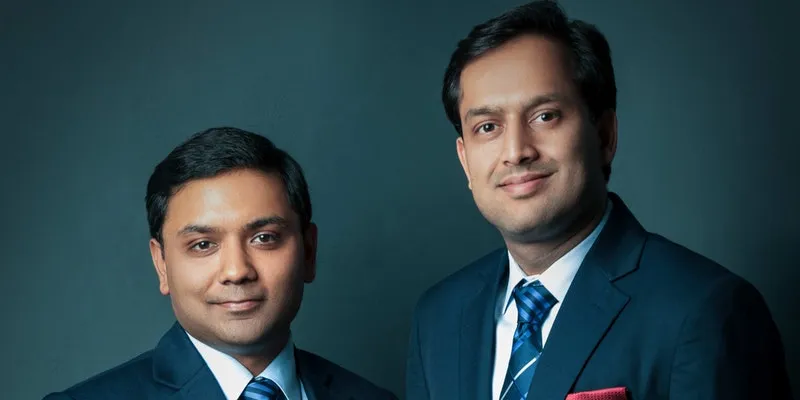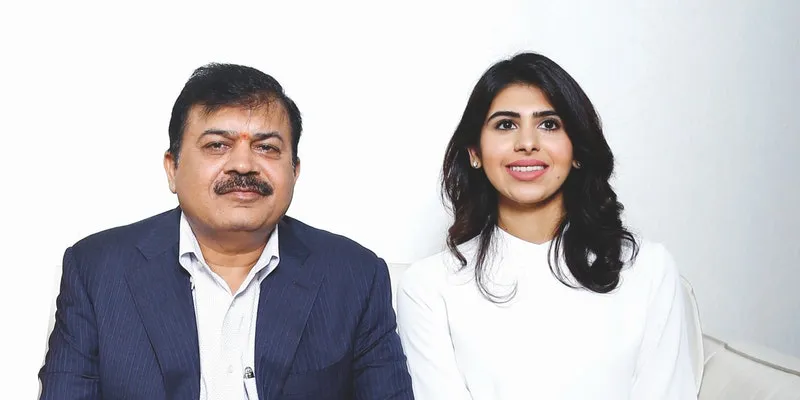Parents’ Day: 5 stories of parents and children who teamed up to take their business to hundreds of crores
Parental figures in India often play an influential role in their children’s lives. This Parents’ Day, read how some parents and children came together to expand their businesses and took them to unprecedented heights.

Traditionally, parental figures in India are given recognition and held in high regard for the influential role they play in their children’s lives.
It is natural for children to look to their fathers for a feeling of security, both physical and emotional. While security may be fleeting in the world of entrepreneurship, fathers are willing to put in the extra effort and help their children become second-generation entrepreneurs. Mothers also inspire their daughters and sons to become independent and even push the envelope for entrepreneurship.
This Parents’ Day, SMBStory lists five stories of parents and children who teamed up to run a successful business and earn in crores.
Vinati Organics

Vinati Organics founder Vinod Saraf (left) with current CEO and MD Vinati Saraf Mutreja (right)
(VOL) is the world’s largest manufacturer of niche chemicals Isobutyl Benzene (IBB) and 2-Acrylamido 2 Methylpropane Sulfonic Acid (ATBS). The company was started in 1989 by Vinod Saraf, which now clocks Rs 1,000 crore in revenue.
But, VOL may not have reached these heights if not for Vinod’s daughter Vinati. Till 2006, despite being a market leader in IBB and venturing into ATBS, the business was making just Rs 2 crore profit and was unable to produce the right quality of ATBS.
Vinati teamed up with her father, and she started from the ground up, spending time in various VOL divisions and learning the ins-and-outs of its numerous business functions. She managed to bring a consultant on board, and figured out a way to cut costs and improve productivity by optimising batch timings. This resulted in increased capacity with minimal investment.
“There was also the considerable effort put in for improving the quality by engaging international R&D experts. This paid off when it resulted in a breakthrough, and we figured out how to greatly improve the quality of our ATBS,” she says. This enabled VOL to ramp up its production of ATBS to 25,000 tonnes, becoming the world’s biggest manufacturer of the chemical.
With Vinod and Vinati at the helm, the chemical manufacturer went on to capture roughly 65 percent of the global market for the product.
Aakash Educational Services

JC Chaudhary and Aakash Chaudhary
Started as a small coaching centre in Janakpuri, New Delhi, in 1988 with just 12 students, Aakash Educational Services Limited (AESL) has built careers of lakhs of students in a span of 31 years. The institute now clocks an annual turnover of Rs 1,200 crore.
JC Chaudhary, the Founder and currently the Chairman and Managing Director of AESL, began the journey by imparting lessons to a batch of 12 students to clear their medical exams.
His son Aakash was nine-years-old when he set up AESL. “My father never pressured me to study or to take forward the legacy. I completed my studies from Harvard Business School, and by profession, I am an engineer. I have worked with Infosys Technologies and Cognizant Technology Solutions. I found my calling and joined AESL, and want to take forward the legacy to build brighter careers,” Aakash tells SMBStory.
In 2006, Aakash started working alongside his father at AESL and was responsible for starting operations in Mumbai. Recalling his past days, he says in the new set-up, many teachers had quit, and he was left alone to read out chapters from books to the students. Aakash currently manages all the business operations of AESL with JC actively participating in the core business decisions.
Odhni

Puneet Jain and Yatin Jain, Directors, Odhni
A strong bonded family relationship when turned into a partnership, builds an empire. For this brand, the love between a duo of sisters-in-law and their sons took it to unprecedented heights.
In 1999, seeking to do something different from their existing family business, sisters Anju and Shashi had launched Odhni – a women ethnic wear brand.
Yatin Jain (37), Director of Odhni, and Shashi’s son says, “My mother and my taiji (aunt) started from a small 500-sqft saree retailing store. They wanted to step out of the house and use their time and talent, and my father supported them. He poured in Rs 15 lakh from his savings, and Odhni was started.”
Later, Puneet Jain (cousin) and Yatin entered the business when they were still in college, after which the parents happily passed on the responsibilities to their children. Odhni today manufactures and sells ethnic women garments, including suits, sarees, gowns, Indo-Western kurtis, and accessories.
The company outsources some of its designs to weavers across Farukkabad, Mumbai, Surat, and Kolkata, among others. Odhni’s flagship store, covering an area of 20,000-sqft, is located in Pitampura, Delhi, and is one of the largest retail stores for women apparel in North India. Odhni records an annual turnover of Rs 80 crore.

MapmyIndia CEO and executive director Rohan Verma
In the early 90s, a young Rohan Verma played around with his parents’ computers and the digital maps they worked on. Rohan’s parents Rakesh Verma and Rashmi Verma, founders of digital map database business CE Infosystems, had quit their US jobs and moved to New Delhi to start the company.
When CE Infosystems was started in 1995, India did not have a map-reading culture like the US. But, Rakesh and Rashmi believed the digital maps market in India would boom, and about 80 percent of all data would have a location component.
In a significant milestone for the company, CE Infosystems came to be known as MapmyIndia — named after an interactive maps portal — a young Rakesh developed for his parents to make the digital map database accessible to a consumer market.
Rohan, an electrical engineer, then joined his parents’ business in 2004 and worked his way up to become the CEO and Executive Director. His parent’s gamble and the move to put the maps online paid off. Over the years, the market for digital maps exploded in India as the country saw a major shift in adopting connected devices and the internet.
Today, MapmyIndia’s inbuilt digital map solutions are used by auto companies, including Tata Motors, Hyundai, Mahindra & Mahindra, BMW, Ford, Jaguar, TVS Motors, and others. Its maps also power Flipkart, Amazon, and Ola Cabs.
Syska

Rajesh Uttamchandani (left), Director, Syska Group, with daughter Gitika Uttamchandani (right).
For a company that has now become synonymous with electrical fittings, it is surprising that Syska was moving to a different tune some 30 years ago. It began as Shree Sant Kripa Appliances Pvt. Ltd (SSK Group) in 1989, involved in the distribution of T-Series audio cassettes, CDs, and audio-video systems.
Started by brothers Rajesh and Govind Uttamchandani, the Syska Group today is a Rs 1200-crore company, of which 70 percent comes from Syska LED, 20 percent comes Syska accessories, and the remaining 10 percent from other segments.
The second-generation leaders Gurumukh Uttamchandani and Gitika Uttamchandani, children of Rajesh Uttamchandani, have joined their father’s business and are handling a large portfolio of Syska personal care products and Syska mobile accessories.
Rajesh Uttamchandani, Director of Syska Group, says, “We are not an electric company, so there were many challenges and ups and downs before we came to where we are.” Today, the company has grown into a domestic leader, and has diversified into Syska LED, Syska personal care, Syska mobile accessories, and Syska Wires.
What drove the growth for Syska is its loyal, growth-oriented, and high-performing distribution network. For any consumer-facing company, cracking the complicated distribution channel is the most challenging task. But for Syska, it was its core competency.
(Inputs from Dipti Nair)
Edited by Suman Singh







1566906114227.png?mode=crop&crop=faces&ar=1%3A1&format=auto&w=1920&q=75)